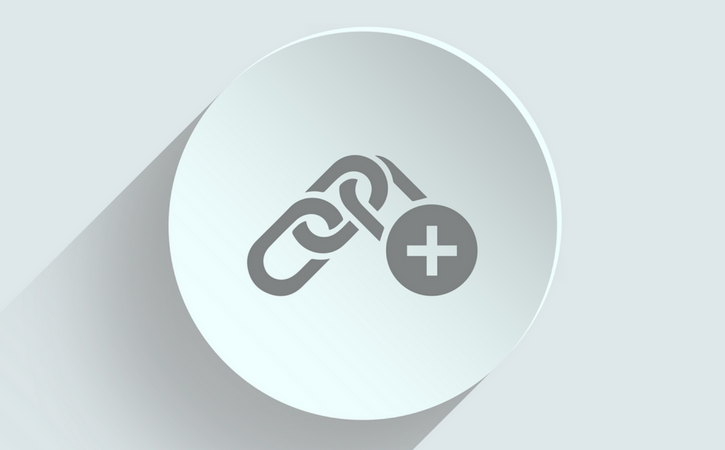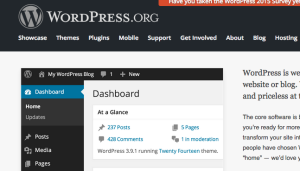
If you’re serious about making some good money from your blog, you need to start boosting your traffic through link building.
You’re never going to make money off a blog with no visitors after all.
There are all sorts of different ways to boost traffic; writing good quality content and posting it regularly is vital, as is promoting yourself on social media.
But search engine optimization is probably the best way to get more visitors to your site, and the key to SEO is link building.
All of the search engines have algorithms which determine which sites appear closest to the top of the results. That’s more important than a lot of people realize because if you aren’t on the first page, you won’t get that many people clicking on your site. In fact, 95 percent of all clicks from Google searches are links that appear on the first page.
If you don’t sort your search engine optimization out, you can’t take your blog to the next level.
There are a lot of different aspects to search engine optimization including keywords and social media mentions but the most important, yet often misunderstood aspect is backlinks.
A backlink is a link on somebody else’s sight which directs back to yours. The algorithms that decide the search rankings are very complex so they’ll take into account things like the quality of the site that is linking to yours and the diversity of the websites that links appear on.
If you make mistakes with your link building, the algorithms may penalize you and you’ll get put right down the listings, meaning that nobody will ever find your site. That’s why it’s so important that you know the do’s and don’ts of link building on your blog.
Audit Links
The first thing you should do before you start link building is assess your current position. Hopefully, you’ll already have some natural links (we’ll come to that later) to your blog before you’ve started making an effort to build them up, but there’s also a chance that you might have some bad links that are affecting your position.
You can get software like Ahrefs which can help you to audit your links and work out how to move forward. Check out Ahrefs: The Ultimate Guide for more information.
As well as helping you to audit your current links, you can use the software to build more links and keep track of them as well.
Buying Links

When Google first started writing their algorithms, they were nowhere near as complex and they could be easily fooled.
People created link directories which were just a blank site full of links and you could pay them to put yours on there. It worked fine back then but once Google realized that people were doing this, they thought that it was unfair.
They updated their system so it could recognize these links and sites would be given penalties for using paid link directories. A lot of the advice online says that you shouldn’t buy links anymore which is sensible advice when it comes to those kinds of directories but there are still ways that you can buy links that will boost your rankings on search engines.
If the links are going to be posted as part of a good quality article on a respected website, then it’s fine to pay for links. Just make sure that you’re getting them from a reliable source.
Natural Links
The natural links we mentioned earlier are the most valuable as far as search engine rankings are concerned.
A natural link is when somebody is writing an article and they find a page on your site and link to it because they like the content and find the information useful. You don’t have to actively seek natural links but you should be producing content that encourages them.
That means content that has good, specific information in it rather than general sweeps and is interesting and fun to read at the same time. Always make sure that you’re spell checking articles before you post them as well because nobody will link to an amateurish article with lots of errors in it.
The difficult thing about natural links is that people need to be able to find your site in the first place which means you already need good search engine optimization so if you try some of the other methods for link building, the natural ones will start to come later.
Reach Out To Other Bloggers
When you’re first starting out, you won’t get those natural links because other sites won’t be able to find you. But that doesn’t mean they wouldn’t want to link to your content if they did find you.
The best way to start building good quality links in those early stages is to be proactive and go out there and find people that might be interested.
The blogging community is very keen on helping each other out so if you reach out to people and let them know about your blog, you’d be surprised how many people will be willing to link back to your blog in their articles.
Just make sure that your content is excellent quality before you do.
Guest Posts
Getting bloggers to link to your site is one way that you can use the community to help you but you can also use guest posts. Bloggers are always happy to use guest posts because it gives a different voice to their site.
When you post as a guest, they’ll include a link back to your site. Get in touch with other bloggers and ask if they’re willing to collaborate. You can guest post on their site and they can do the same for you, meaning that you both get a good quality link and some varied content.
However, Google algorithms are wary of people trading links so you have to be careful. It won’t harm your ratings if the sites you guest post with are in a relevant area but if you’re just swapping with anybody, you can be penalized for it.
Injecting Links
Injecting links is a technique that is just about on the right side of the law but it goes against all of Google’s guidelines. A website is hacked and links are placed in the code. They don’t appear on the website when users view it but Google will pick up on it.
While it might go unnoticed for a while, they will eventually work out what you’re doing and the penalties will be severe. They may even take you off their search engine entirely which will spell disaster for your blog.
There are quite a few of these so called ‘black hat’ tactics which, while not illegal, will get you severe punishments from the search engines. We don’t recommend this at all.
Self Built Links
A lot of people advise against self built links because they’re fairly low value. Self built links refer to links that you post yourself on others websites, usually through comment sections.
However, they do still help with your link building profile. They are low value so don’t make the mistake of thinking you can to the first spot on Google by posting a load of comments with your site in, but it’s worth spending half an hour every now and again posting a couple.
Like everything else, it’s important that the links are relevant. If you’re posting on random websites that aren’t in your industry, Google will pick up on that and penalize you, but if they’re on relevant sites, they’ll give you a little extra boost.
Link building is one of the most important parts of search engine optimization but you need to be very careful because if you get it wrong, you can seriously damage your chances of success.

